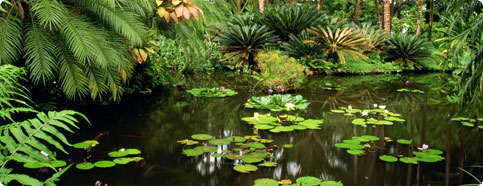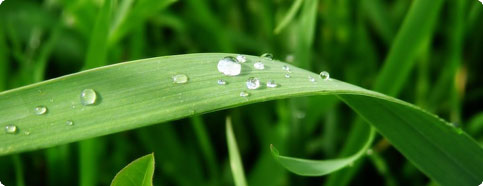Flora Library
Search for plants are chemical factories


















plants are chemical factories
Listing 1 - 10 from 10 for plants are chemical factories
coal seams american chestnut chemical factories apollo herbs organic materials drought resistance dixon said light energy west virginia water sprays student travel awards till agriculture worm castings plant biology kitchen waste medicinal herbs
Botany and Society - Careers in Botany, Science Education and Outreach
... Plants are chemical factories - plant biochemists are engaged in identifying and purifying potentially useful chemicals produced by plants. Many of the drugs listed in the U.S. Pharmacopeia are still obtained from plants ... most important hardwood species. Plants are chemical factories. Many of the chemicals that they produce are useful to humans. Besides food, plants provide raw materials for paper, ...
www.botany.org
Climate during the Carboniferous Period
... Carboniferous Period-- a time when terrestrial Earth was ruled by giant plants and insects, and glaciers waxed and waned over a huge ... less erosion of the land and therefore reduced opportunity for chemical reaction of CO2 with freshly exposed minerals. Also, there was ... its own. If humans are in fact altering Earth's climate with our cars, electrical powerplants, and factories these changes must be ...
www.clearlight.com
Biotechnology and the Environment
... proteins that are appropriate for use in crops. Because these plants produce insecticidal proteins, they provide at least partial protection from damage caused by certain insects, which results in reduced chemical insecticide ... constantly. For example, biosensors could be used in the soil or water outside of factories to ensure that discharge from the factory was acceptable at all times or at ...
www.ext.vt.edu
Aphids
... factories" can be created. Knowing all of this gives you the opportunity to control those pesky little critters in a variety of ways. The following are ... chemical compound ingredients work like pyrethrins, but also act as repellents to some pest species Orthene Or Shield- These are but two of many insecticide sprays available. These are ...
www.geocities.com/macaraorchids
Encyclopedia Articles
... by which green plants and certain other organisms transform light energy into chemical energy. During photosynthesis in green plants, light energy ... chemosynthetic bacteria, which can utilize the chemical energy of certain inorganic compounds and thus are not dependent on the conversion ... fuels not only provide much of the energy used in factories, homes, and transportation, but they also serve as the ...
www.life.uiuc.edu
Botanical Garden | MUN Botanical Garden Compost Education Program
... chemical fertilizers. Compost does, however, release nutrients to plants over the long-term, whereas chemical fertilizers are a short-term solution and must be reapplied regularly over the growing season. Extensive use of chemical ... penetrate the soil and improve root development. They are also living miniature compost factories! During digestion they secrete chemicals which free nutrients necessary ...
www.mun.ca
Noble Foundation scientist awarded $1.4 million grant
... Dixon's university collaborator, David Marks, Ph.D., from University of Minnesota. "Trichomes are highly specialized chemical factories with tremendous potential for scientific discovery," Dixon said. "Funding from the NSF ... 's team will study trichomes for the next three years, examining five species of plants, including tomatoes and alfalfa. Dixon said the study of trichomes will help scientists ...
www.noble.org
Our Favorite Links
... ingredients wherever possible. No synthetic ingredients are ever used. From Leaf to Cup ... / workshop. Included in our facility is herbal factories, producing garden markers, scented botanical candles, ... chemical free, home grown, or purchased organic herbs Honey Rock Herb Farm...Our small farm is located at the foothills of the Great Smokey Mountains. We offer organically grown herb & vegetable plants ...
www.otoolesherbfarm.com
Notes on Drought Proofing Your Rhododendrons
... a root system and increase its uptake of water and nutrients. Soil microorganisms are also little chemical factories. As they break down organic materials into soil, they convert substantial quantities of ... the high level of bacterial action during decomposition will deprive your plants of nitrogen. Fresh leaves and grass are particularly poor because they hold large amounts of water and deprive ...
www.rosebay.org
Sacred Earth - Ethnobotany & Ecotravel
... upon. Some have termed them 'original alchemysts', (or less poetically - 'biochemical factories') capable of producing a myriad of chemical compounds, which modern chemists still find difficult to imitate, let ... with unforeseen and devastating results. But we should never forget, that nature, and plants in particular, are the basis of our existence - physically as well as spiritually they form ...
www.sacredearth.com